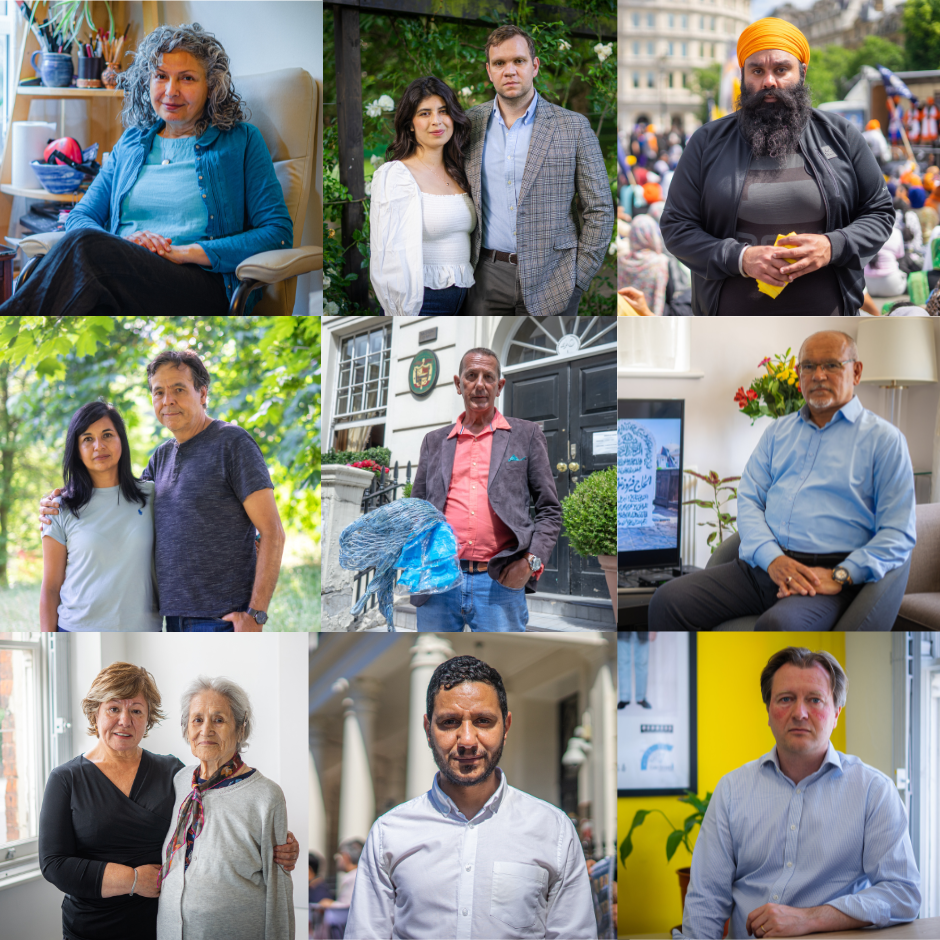
26th June: Centring Survivors’ Voices within the Anti-Torture Movement
By Camila Marin Restrepo, Communities Officer
Many survivors of torture divide their lives into two time periods: before and after torture. Although the impact often lasts a lifetime, many survivors of torture go on to successfully rebuild their lives, a testament to their strength and tenacity.
The 26th of June marks the United Nations International Day in Support of Victims of Torture. This day is an opportunity for governments, civil society, and individuals to come together and support survivors of this heinous crime from across the globe. To commemorate the day and strengthen the UK’s response to torture, REDRESS has united with UK-based survivors of torture and leading anti-torture organisations to support survivors in seeking accountability, redress, and much needed policy change.
Over the past year, REDRESS has engaged a network of survivors to develop a Manifesto, which sets out their recommendations to the UK government on how to remove the main barriers that prevent them from accessing justice. They cover several priority issues including accountability, rehabilitation, asylum, and immigration. To advocate for these changes to take place and to maintain focus on this issue, we have developed an advisory group composed of survivors of torture and their families. Individuals with lived experience bring a range of skills and expertise, as well as the profound commitment to preventing others from experiencing what they have been through. They have also witnessed the introduction of regressive laws that have negatively impacted their respective rehabilitation processes.
The de-prioritisation of torture in the UK
Despite the UN Committee Against Torture raising concerns relating to compliance with the Convention Against Torture in two reviews over the last 10 years, there has been a clear de-prioritisation of torture by the UK government. The Foreign, Commonwealth and Development Office’s anti-torture prevention strategy was dropped in 2015. Since then, the UK government has not had a centralised strategy for torture and human rights, which has been lost under other objectives.
In recent years, the British government has also introduced several bills that, if passed, will be detrimental to survivors of torture living in the UK, as well as asylum seekers, many of whom have been impacted by torture and mistreatment. According to our Whose Justice? report, between 27% and 44% of refugees and asylum seekers in high-income countries like the UK will have experienced torture.
The Illegal Migration Bill breaches UK international obligations, including the Refugee Convention and the Convention Against Torture, whilst other bills such as the Overseas Operations Act, the Northern Ireland Troubles Legacy Bill and the National Security Bill may perpetuate impunity for acts of torture committed by UK armed forces, intelligence services or in cases where the UK was complicit.
Tawanda Muchehiwa, a law student and survivor of torture from Zimbabwe, states that the proposed legislation “is so dire that it not only opens doors for more gross human rights violations in the form of torture,” it also “sends a message to dictators and oppressive regimes that they can get away with gross human rights violations in their individual countries.”
The UK was one of the first state parties to sign the Convention Against Torture and should uphold this commitment, while looking to survivors for their insight and expertise.
The need for survivor-centred advocacy
At REDRESS, one of our key values is our survivor centred approach, this means we place the survivors’ best interests at the centre of our work and recognise that all survivors of torture are different. Seeking justice and accountability through human rights mechanisms is often a lengthy process that can take several years, which can be incredibly difficult for individuals who have experienced trauma and may have social, economic or immigration challenges that they are also trying to navigate. This is why working in collaboration with survivors to build their inner confidence and trust in others, through initiatives such as our manifesto and the survivor advisory group, are so important.
The survivor advisory group is a space that has been created for survivors to come together to discuss advocacy strategies and initiatives in the fight against torture, whilst challenging the existing power balance between us as practitioners and them as survivors. They also get to meet others who have been impacted by similar experiences and understand that they are not alone. “Ultimately, involving survivors in the anti-torture sector’s processes can lead to more effective policies, better outcomes for survivors, and a greater respect for human rights,” says Tawanda. Not only does survivor-centred advocacy strengthen our advocacy messaging, if done in a meaningful and compassionate way, it can also contribute to rehabilitation.
At REDRESS, we are committed to survivor-centred advocacy and continue to work collaboratively with survivors and anti-torture organisations, enriching the UK’s anti-torture movement as a whole. If you would like to hear more about how you can support our work, please contact [email protected]
